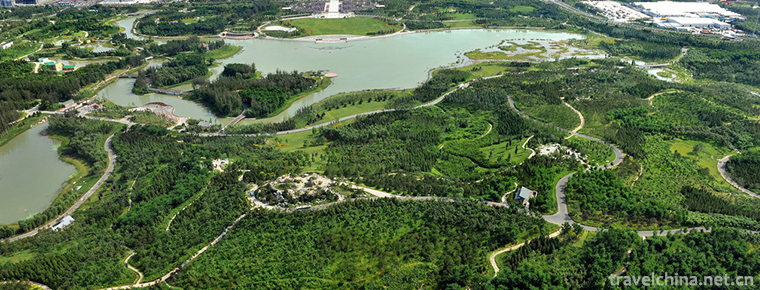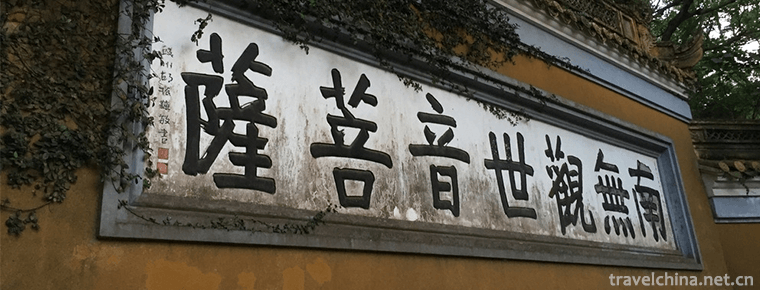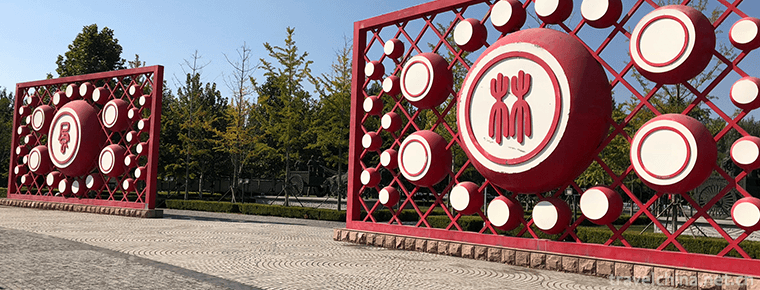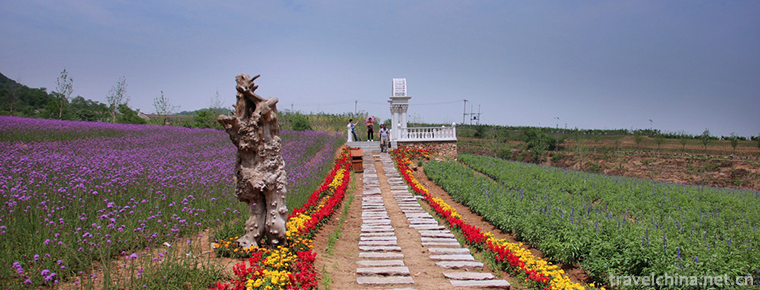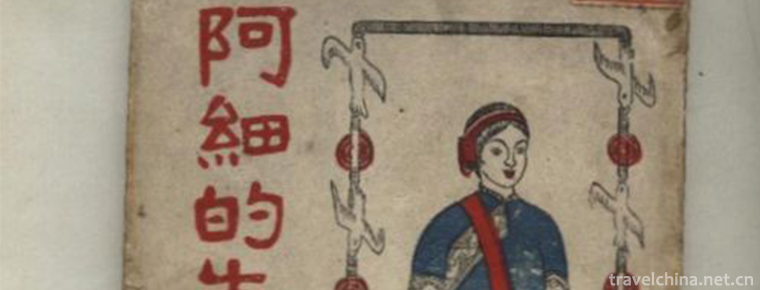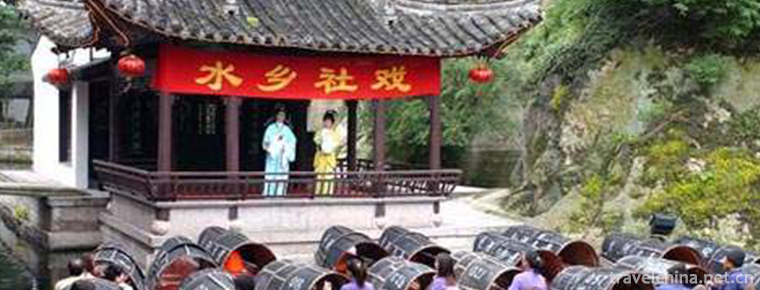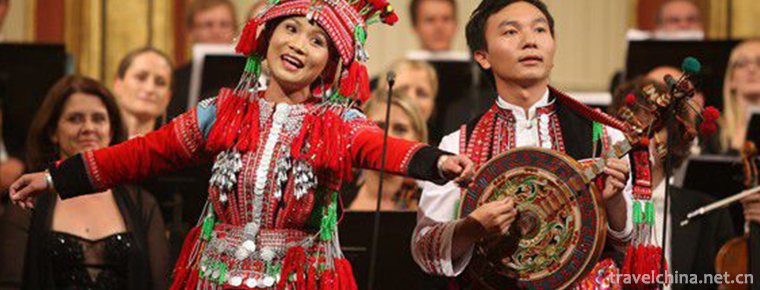Legend of Eight Immortals
Legend of Eight Immortals
The legend of Eight Immortals is one of the local folklores in Shandong Province. The legend of Eight Immortals originated very early. The legend of "Eight Immortals Crossing the Sea, Each Showing Immortals" is almost a familiar story. Are these eight immortals mythological figures created out of nothing, or are they the imitations of some figures in history? It should be said that all gods are man-made, and the so-called "Eight Immortals" are naturally no exception. Most of them are based on historical figures, but there are different opinions.
On June 7, 2008, Baxian Legend was approved by the State Council to be included in the second batch of national intangible cultural heritage list.
Heritage List
Date of declaration: 2008
Declarer/Declarator: Penglai City, Shandong Province
Heritage Level: Country
Tracing to the source of Legends
The legend of the Eight Immortals originated very early, but there are many kinds of stories about the characters. If the Eight Immortals in Huainan refer to the Eight Gongs who helped Liu An, the king of Huainan in the Western Han Dynasty, write Huainan Zi, and Huainan Wang is a good medicine for immortals, which will be handed down as immortals in later generations. The saying of the Eight Immortals in Huainan may be accompanied by this matter. In the Five Dynasties, Taoist priests painted Eight Immortals in Shuzhong, including Rong Chenggong, Li Er, Dong Zhongshu, Zhang Daoling, Yan Junping, Li 800, Fan Changsheng and Erzhu. The so-called Eight Immortals were formed in the Yuan Dynasty, but the characters were different. By the Ming Dynasty, Wu Yuantai's "Journey to the East of the Origin of the Eight Immortals". The story of Tieguai Li and other Eight Immortals crossing the sea has been spreading day by day, and the eight immortals have also stabilized in the circulation. Eight immortals have different origins and times. Zhang Guo, a scholar of Taoism in the early Tang Dynasty, was first seen in historical records and indeed someone else. At the beginning of the Five Dynasties and Song Dynasty, the fairy tales and legends about Lu Dongbin were very popular. They were inspired by the spread of Taoist Neidan practice. During the two Song Dynasties, the "Zhong Lujintan Road" was widely spread. In response to folk beliefs and legends, Quanzhen Taoism emerged in the Jin and Yuan Dynasties. In order to publicize its methods, Zhong Liquan and Lv Dongbin were regarded as the five ancestors of the North. Folk legends, drama talks and so on developed with Taoist immortals. Eight immortals stories spread widely and their contents became more and more rich. Lu Dongbin is the core figure of the formation of the Eight Immortals. Taoism calls it Lu Zu. Taoism in all places, especially Quanzhen Taoism, is constantly worshipped.
Introduction to eight immortals
In Chinese folklore, almost everyone is familiar with the story of "Eight Immortals Crossing the Sea, Each Showing His Magic Power". Whether these eight immortals are mythical figures created out of nothing or the imitation of some figures in history? It should be said that all gods are man-made, and the so-called "eight immortals" are no exception. Most of them are based on historical figures, but there are different opinions.
The Eight Immortals in Chinese folklore are Tieguai Li, Zhong Liquan, Zhang Guolao, Lu Dongbin, He Xiangu, Lan Caihe, Han Xiangzi and Uncle Cao Guoquan.
According to some studies, the word "eight immortals" existed in the Han and Six Dynasties. It originally refers to a group of immortals fantasized by immortals since the Han and Jin Dynasties. Until the Tang Dynasty, "eight immortals" were only an empty term. The specific characters of the eight immortals mentioned above were formally determined only after the publication of Wu Yuantai's Journey to the East and Tang Xianzu's Handan Dream in the mid-Ming Dynasty.
First of all, Tieguai Li is the first of the Eight Immortals in folklore. In some books, Tieguai Li is called Li, named flood. In Sui Dynasty, Xia Ren, Lu Xun's Brief History of Chinese Novels, his name is Li and his name is Xuan. In Zhao Yi's "Qiyu Congkao", his name is Liu. It is said that he was a man between Kaiyuan and Dai Zong Dali in Tang Xuanzong. He learned Taoism in Zhongnanshan. Once the Yuan God came out of the shell, he did not think that the dead body was eaten by tigers, so he had to devote himself to a lame beggar. "Ancient Immortals Tongjian" said that his original handsome husband, good Taoism, would lead to the introduction of the Yuan Shen magic, practice in Dangshan caves, once in response to the agreement of Master Lao Tzu, the "Yuan Shen out of the shell" magic, went to Huashan thousands of miles away, a few days later returned, found that his body was burned by his apprentices, suddenly found a nearby hungry, the inspiration said, "That's enough." That is, from the hungry brain into, the soul returned to the shell into a bunch of curly hair, black face and huge eyes, and also lame an ugly man with his right foot. It seems that he is a Taoist immortal who has been handed down orally and everything has come together.
Zhong Liquan is second only to Tieguai Li in fame among the eight immortals. He has a high position among the Eight Immortals, especially because of the praise of Taoists, and has a greater reputation. In the Yuan Dynasty, Jin Zhendao was regarded as "the ancestor of Zhengyang". The prototype of his characters appeared in the Five Dynasties and the early Song Dynasty. Xuanhe Chronicle, Yijian Zhi and Song Shi all have records of his deeds, but later he was falsely dismissed as Zhongli of the Han Dynasty. The titles of Shenxian Tongjian and Continued Documents Tongkao are Zhong Liquan, Zhong Liquan, Zhong Liquan, Silent Road, Xiaoyun House and Zhengyangzi. Xianyang people of the Eastern Han Dynasty, whose father Zhong Lizhang was a general of the Eastern Han Dynasty, and his brother Zhong Lijian was a general of the Zhonglang Dynasty. In the Tang Dynasty, there was a man named Zhong Liquan, whose three quatrains were recorded in Quan Tang Poetry, accompanied by a short biography: "Xianyang people, encountering old people to teach fairy tricks, and Huayang real people, Shangxianwang Xuanfu, preaching to Kongtong Mountain, calling himself Mr. Yunfang, and going to the queen fairy." His remaining poems are titled "Three Quintessence Sentences on Chang'an Wine Restaurant". They include "sitting and lying with a pot of wine, not teaching eyes to understand the imperial capital", "getting Tao and genuine immortals is not easy to meet, when to go back and follow each other". They also have some "fairy taste", and they are good people.
Zhang Guolao is a middle-aged and elderly immortal, named Zhang Guo. Because of the highest age among the eight immortals, people respect Zhang Guolao as "Zhang Guolao". In history, there are Zhang Guoqi people. The new and old Tang Shu are biographies. Wu Zetian lived in seclusion in Zhongtiaoshan. People all call him the secret art of longevity. He claims to be hundreds of years old. Wu Zetian sent envoys to call on him, and Zhang Guolao refused to die. In the 21th year of Xuanzong's reign, Hengzhou Acci Shiweiji played his fantastic story on the emperor. Xuanzong called him and Zhang Guo pretended to be dead again. It took a long time for him to wake up and the messengers dared not enter. Xuan Zong heard that Xu E was sent to invite him again. Zhang Guo had to go to Beijing. It is said that Xuanzong of the Tang Dynasty was suspicious of his rumors. Xing He Pu, who once called good fortune teller and good fortune teller, was ignorant of Zhang's Jiazi, and Taoist "night light" was good at ghosts. Xuanzong told him to look at Zhang Guo, but he asked, "Where is Zhang Guo?" I couldn't see him face to face. From the historical records, Zhang Guo is just an old and decadent magician with some guilt. Why not pretend to be dead several times in order to avoid conscription? It's just magic at best. Therefore, all the fairy tales about him were fabricated by Taoism in order to propagandize the need, relying on folklore and exaggerating its words. "Taiping Guangji" also records that Zhang Guolao claimed to be the person of Emperor Yao. Tang Xuanzong asked the magician "Ye Fashan" Zhang's origin. Ye Fashan said, "The minister dares not say that he will die at once." Afterword: "Zhang Guo is a white bat essence at the beginning of chaos." After falling to the ground, Zhang Guocai saved him by appealing to Xuanzong for love.
The most popular stories among the eight immortals are Lu Dongbin. In Taoism, Quanzhen Taoism regards him as "the ancestor of Chunyang", also known as "Lu Zu". Most researchers have always believed that Lu Dongbin was named Lu Mingyan and was born in the late Tang Dynasty. His poems are included in Poems of the Jin and Tang Dynasties and Ci Zong. In Song Dynasty, Luo Dajing's Helin Yulu, Hong Mai's Yijian Zhi and Jixian Zhuan all recorded them. It is said that he is a Beijing Zhaoren (today's Shaanxi, Xi'an area), Tang Xiantong middle and first, had served as two county magistrates. It is said that he was from Jiujiang, originally a Tang imperial clan, surnamed Li, because he avoided the disaster of the empress of the armed forces, his surname was Lv. His first name was Shaoguang. After more than 20 years of failure in the Imperial Academy, he swam around the world and was transformed into Tao by Zhong Li-quan. He is one of the eight immortals with the strongest human feelings. He is smart and interesting. He can eliminate violence and calmness for the people, demons and monsters, and good wine and lust. There are many legends about Lu Dongbin's Three Dramas, White Peony. His legends are mixed, but it can also be seen that he was a Taoist scholar in the Tang Dynasty and was deified into immortals.
He Xiangu is the only woman among the eight immortals. There are different opinions about her life experience. She was born in the Tang Dynasty. "Taiping Guangji" in the early Song Dynasty quoted "Guangyiji" as "He Erniang". She was a farmer's wife who worked as a shoe weaver. Afterwards, she swam to Luofu Mountain for suspicion of being too stuffy at home. She lived in a mountain temple and often collected fruits for the monks of the temple to eat. Once, monks from Xunzhou Mountain Temple came to Luofushan Temple 400 miles away and said that a fairy went to pick bayberry fruit on that mountain one day. It was the day when Erniang picked bayberry fruit. In addition, everybody did not know where Erniang picked these many fruits, so they thought Erniang was the fairy of Xunzhou Mountain Temple. From then on, Erniang was well-known far and near, and she no longer lived in the mountain temple. "Continued Tongkao" said that He Xiangu was born in Zengcheng County, Guangdong Province in the Tang Dynasty. She was born with six millimetres of light on her head and was born with a pair of "Xianke". When she was 13 years old, she met a monk in the mountains and ate a Taoist peach. She was never hungry, thirsty, light as a fly, and could foresee the misfortunes and fortunes of life. Later she was called into Beijing and left on her way. She was born in the Song Dynasty. Some literati notes in the Song Dynasty call her Yongzhou (Lingling) in the Northern Song Dynasty. Some say that she met a stranger when she was young and had to eat fairy peaches to become immortals. It is said that she grazes in the countryside, meets a stranger to send jujubes and becomes immortal after eating. In the notes of the Song Dynasty, she also records some stories about divination and divination, which predicts misfortune and fortune. For a moment, scholar-officials and curious people contend to divine there before. It can be seen that she is only a folk witch who is good at divination.
One of the eight immortals is a cynical, crazy begging Taoist immortal named Lan Caihe. His deeds can be found in Shenfen Xuxian Zhuan of the Southern Tang Dynasty, Taiping Guangji of the early Song Dynasty and Lu You's Nantang Shu. It was from the late Tang Dynasty to the Five Dynasties. His behavior is eccentric, greedy cup singing, usually wearing a broken blue shirt, one foot wearing a boot, the other barefoot girl. What's more unusual is that in summer he wears cotton-padded clothes, but in winter he lies in the snow and gets hot all over his body. Usually, he holds a big clapper with more than three feet, beats a bamboo board, walks along the street and begs. He sings many songs, mostly by touching the scenery, which not only makes the world feel unpredictable, but also fairy. One of them is the cloud: "Ta Ge Lan Cai He, the world can be geometric? Beauty in the spring trees, fleeting years throw shuttles, the ancients mix away and never return, today people have come more. When I ride Lufeng to Bibo, I see Sang Tiansheng Baibo at dusk. Chang Jing Minghui is in the space, and the Gold and Silver Palace is in the high elevation. He behaved madly, and was given money to him. He mostly gave money to the poor. Blue Pick and no place to live. He lived all over the world. The prototype of this immortal is a wanderer in a river and lake. Because of his madness and good service to the poor, he is deeply loved and deified into immortals.
It is generally said that Han Xiangzi was the nephew of Han Yu, a famous writer in the Tang Dynasty. He was introduced in books such as Tang Shu, Premier's Genealogy Table, Youyang Miscellaneous figurines, Taiping Guangji and Xianzhuan Picking up Relics. One is called Han Yu's nephew. In history, Han Yu did have a nephew named Han Xiang, Zengguan Dali. Han Yu once wrote the poem "Moving Left to Languan to Show His Nephew Sun Xiang": "A song plays nine times a day in the morning, and at sunset it demotes to Chaoyang Road eight thousand. If you want to get rid of the ills of the pilgrimage, you will decay and cherish your old age! Where is the Qinling family in Yunheng? Snow holds the blue horse close, knows you should come far to have the intention, so as to collect my bones by the river. The legend of his immortality was first found in Duan Cheng's You Yang Miscellaneous Figures in the Tang Dynasty. The book says Han Yu has a young house nephew who is frivolous and unrestrained and does not like reading. Han Yu once blamed him, but he can make Zhuangdanhua change its color according to his uncle's request within seven days, and there is "Where is the Yunheng Qinling family..." on each one. Han Yu was amazed at his poems. It is also said that Han Xiangzi is Han Yu's nephew. His deeds are similar to those in Youyang Zali. Han Xiangzi's character prototype is Han Yu's nephew, which was immortalized in the Five Dynasties.
Uncle Cao, who ranked the end of the Eight Immortals, appeared the latest and had few fairy tales. Their origins are similar to each other, and they are all related to Empress Cao of Renzong of Song Dynasty. There are biographies in the History of Song Dynasty, Cao You, the word uncle, the son of Cao Bin and the brother of Cao Queen. He was easy-tempered, proficient in rhythm, fond of poetry, fengjiyang County king, experienced several dynasties and sailed smoothly, seventy-two years old and died. "Immortal Tongjian" cloud: Uncle Cao is pure in nature, does not like wealth, but admires immortality, his brother is arrogant and illegal, presumptuous, uncle Cao is deeply ashamed of his evil deeds, then into mountain practice, when Zhong Li Quan, Lu Dongbin and accept him as an apprentice, soon uncle Cao into immortality. Uncle Cao Guo mentioned in Journey to the East is slightly the same as above.
Folk Tales
During the Jianlong period of the Northern Song Dynasty, Shamen Island (now Miaodao) was the place where the court imprisoned prisoners. From the third year of Jianlong, all soldiers broke the law and distributed Shamen Island. Year after year, there are more and more prisoners on the island. But the imperial court only allotted 300 people a year to the whole island's rations, so food is increasingly insufficient to eat. Later, Li Qing, the head of the guard of Shamen Island, came up with a cruel method: when the prisoners exceeded 300, he tied up some of them and threw them into the sea to drown, so that the prisoners on the island were always kept within 300 people. In two years, more than 700 people were killed. In order to survive, the prisoners often jumped into the sea and fled for their lives, but most of them were swallowed up by the raging waves. Once, there were more than 50 prisoners. When the prisoner got the news that he was about to be killed, he took advantage of the sunny day and the bright moon, avoided the guards, jumped into the sea with gourds and wood, and swam towards Penglai Mountain. About 30 miles from Shamen Island to Penglai, most of the prisoners drowned in the water, leaving only eight good tourists with martial arts and strong physique who swam to the shore by the current and hid in the lion cave under the North Danya Mountain in Penglai City. The next day, the fishermen found them. When they heard that eight people came from Shamen Island to swim across the sea, they were amazed. They were called "God Man". This matter was spread among the people, and spread more and more. They were called "Eight Immortals" and evolved into today's story of "Eight Immortals Crossing the Sea".


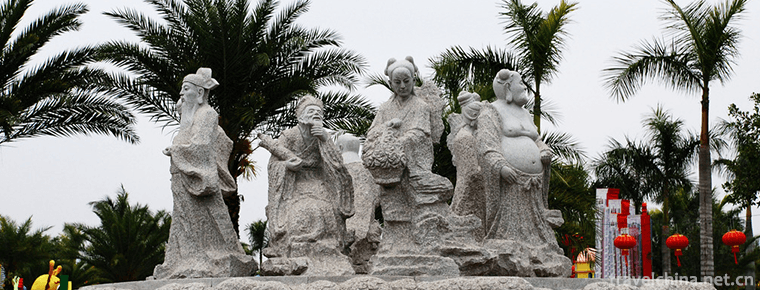
-
Beijing Olympic Park
Beijing Olympic Park Located in Chaoyang District of Beijing, Beijing Olympic Park is located at the north end of the central axis of Beijing.
Views: 178 Time 2018-11-24 -
Putuo Mountain Scenic Spot
Putuo Mountain Scenic Spot, located about 100 nautical miles east of Hangzhou Bay, Zhejiang Province, is an island in Zhoushan Islands. The island covers an area of 12.5 square kilometers.
Views: 157 Time 2018-12-07 -
Mount Longhu Scenic Area
Located in Yingtan City, Jiangxi Province, the Longhu Mountain Scenic Area is 18 kilometers away from the city center. It consists of six scenic spots: Xianshuiyan, Longhu Mountain, Shangqing Palace.
Views: 178 Time 2018-12-08 -
Sun Tzu Cultural Park
Sun Tzu Cultural Park is located in the East New Area of Guangrao County. It has been listed in the "four batches" key dispatching and promotion projects of the Yellow River Delta High Effic.
Views: 256 Time 2019-02-13 -
Ziyunhuashi Lavender Manor
Ziyunhuashi Lavender Manor is located in Jinzhou New District, Dalian City, covering more than 1000 mu, growing in patches of lavender, verbena, sage, roses and other precious vanilla. Dalian's key to.
Views: 209 Time 2019-03-22 -
Ah Xi Xian Ji
"Xianji" is an epic of the Ashi people of the Yi tribe, which is spread orally among the Ashi people in the Xishan area of Maile City, Yunnan Province. "Xianji" is the transliterat.
Views: 197 Time 2019-03-28 -
Shuixiang Opera
Shuixiang opera is a traditional folk cultural activity in Shaoxing, Zhejiang Province. Waterfront theatres are mostly built on rivers in front of temples such as land temples, so they are called &quo.
Views: 169 Time 2019-06-16 -
The seafood tune of the Yi nationality
The seafood tune of the Yi nationality Shiping Yi seafood tune, also known as "Shiping tune" and "Quzi", is commonly known as "inverted paddle". It is named after a herba.
Views: 315 Time 2019-07-12 -
Tiantai Mountain in Qionglai
Tiantai Mountain Scenic Area in Qionglai is located in the southwest of Qionglai City, the hometown of Wenjun. It is the habitat of Sichuan Giant Panda. It is 110 km away from Chengdu City and 45 km away from Qionglai. .
Views: 192 Time 2020-11-05 -
Summary of Deyang
In 2018, Deyang's GDP reached 221.39 billion yuan, an increase of 9.0% over the previous year at comparable prices. The total economic output has exceeded 200 billion yuan, with per capita GDP of 62569 yuan. Among them, the added value of the primary industry.
Views: 335 Time 2020-12-14 -
Social undertakings in Guangyuan
In 2018, Guangyuan City achieved 31 major scientific and technological achievements throughout the year, and 1466 patents were applied, including 288 inventions and 931 authorized patents. 84 technical contracts were registered, and the transaction value.
Views: 311 Time 2020-12-15
